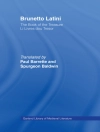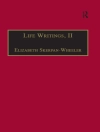A new critical assessment of the works of the Austrian-Jewish author, in whom there has been a recent resurgence of interest, from the perspective of world literature.
The twenty-first century has seen a renewed surge of cultural and critical interest in the works of the Austrian-Jewish author Stefan Zweig (1881-1942), who was among the most-read and -acclaimed authors worldwide in the 1920s and1930s but after 1945 fell into critical disfavor and relative obscurity. The resurgence in interest in Zweig and his works is attested to by, among other things, new English translations and editions of his works; a Brazilian motion picture and a best-selling French novel about his final days; and a renewed debate surrounding the literary quality of his work in the
London Review of Books. This global return to Zweig calls for a critical reassessment of his legacy and works, which the current collection of essays provides by approaching them from a global perspective as opposed to the narrow European focus through which they have been traditionally approached. Together, theintroduction and twelve essays engage the totality of Zweig’s published and unpublished works from his drama and his fiction to his letters and his biographies, and from his literary and art criticism to his autobiography.
Contributors: Richard V. Benson, Jeffrey B. Berlin, Darién J. Davis, Marlen Eckl, Mark H. Gelber, Robert Kelz, Klemens Renoldner, Birger Vanwesenbeeck, John Warren, Klaus Weissenberger, Robert Weldon Whalen, Geoffrey Winthrop-Young.
Birger Vanwesenbeeck is Associate Professor of English at the State University of New York at Fredonia. Mark H. Gelber is Senior Professor of Comparative Literature and German-Jewish Studies at Ben-Gurion University of the Negev, Israel.
Inhaltsverzeichnis
Introduction
A Stefan Zweig Revival? – Birger Vanwesenbeeck
Stefan Zweig’s Drama Jeremias in Context – John Warren
‚That Voice in the Darkness!‘: Technologies of the Tropical Talking Cure in Stefan Zweig’s Der Amokläufer and Verwirrung der Gefühle – Geoffrey Winthrop-Young
Narrating Alterity: Stefan Zweig, Emmanuel Levinas, and the Trauma of Redemption – Robert Weldon Whalen
Stefan Zweig and the Concept of World Literature – Mark H. Gelber
Landscape, ‚Heimat, ‚ and Artistic Production: Stefan Zweig’s Introduction to E. M. Lilien: Sein Werk – Richard V. Benson
Stefan Zweig’s Non-fictional Prose in Exile: Mastery of the European Genre of ‚Kunstprosa‘ – Klaus Weissenberger
The Writer’s Political Obligations in Exile: The Case of Stefan Zweig – Robert Kelz
True to Himself: Stefan Zweig’s Visit to Argentina in September 1936 – Darien J. Davis
Exile and Liminality in ‚A Land of the Future‘: Charlotte and Stefan Zweig in Brazil, August 1941-March 1942 – Marlen Eckl
Stefan Zweig’s Concept of Brazil in the Context of German-Jewish Emigration – Klemens Renoldner
Stefan Zweig: Life in Cities of Exile – Jeffrey B. Berlin
Notes on the Contributors
Index












